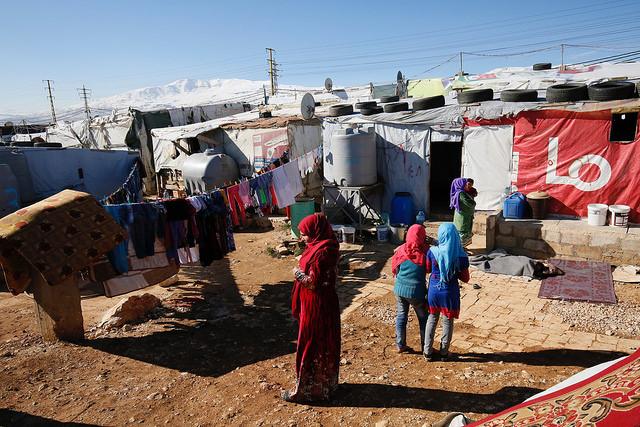
In his book The grand strategy of the Byzantine Empire, political scientist Edward Luttwak credits Byzantium’s longevity to the quality of its diplomacy. By relying on persuasion, alliances and containment, rather than force, Luttwak argues, the Eastern Roman Empire managed to last for eight centuries—twice as long as the Roman Empire from which it sprang. As countries like Turkey and the United States attempt to navigate the highly complex—or ‘byzantine’—situation in Syria, they would do well to recall Byzantium’s diplomatic sophistication.
The Turkish Army’s offensive against the territories in northern Syria held by the Kurds—America’s closest partners in the fight against the Islamic State—highlights the true complexity of the Syrian crisis. Turkey and the US, both founding members of NATO, now face the real risk of an escalation that could lead to a direct confrontation between their respective armed forces—a confrontation that Russia would watch with satisfaction.
Turkey is succumbing to the simplistic calculus of the Middle East: territory equals power. For Turkey—so proud of its imperial history, yet anxious over the loss of its former glory—the obvious conclusion is that its Kurdish population must not, under any circumstances, secure control over any of its land.
In recent decades, Turkey’s efforts to achieve its neo-Ottoman dream of exercising a decisive influence in its neighbourhood have been repeatedly frustrated. While many Arab reformers looked to Turkey as a model of modern democracy after the so-called Arab Spring erupted in 2010, things did not unfold according to plan.
As for Turkey, it has since slid toward authoritarianism, thanks partly to President Recep Tayyip Erdoğan’s effective use of nationalism. Mehmetçik Kut’ül-Amare, a Turkish television series that depicts a glorious Ottoman victory over the British during World War I, has become a hit among Turkish viewers. And Erdoğan’s popularity usually rises at times of higher military tension, to the point that some political commentators in Turkey have suggested the possibility of early elections to consolidate the regime further, much like the failed coup d’état did in 2016.
All of this has helped to alienate Turkey from the European Union. And, indeed, Erdoğan’s regime has now abandoned the pretense of pursuing closer ties with that bloc, instead redoubling its commitment to strengthening its position in the Middle East. Turkey’s priority is to prevent an autonomous enclave of Syrian Kurds from forming on its border—an outcome that could inspire Turkey’s own Kurdistan Workers’ Party (PKK), which has been behind multiple terrorist attacks on Turkish soil, to demand the same.
To be sure, there is always the risk that Turkey’s military adventures in Syria could backfire—say, if there are significant human losses or an adversary deemed to be inferior secures an important victory. Authoritarian regimes are more vulnerable to failed military adventures than democratic ones. But, for now, Erdoğan seems committed to his strategy, which combines offensive and defensive objectives.
All of this has created a dilemma for the US, which is now being forced to choose between its official ally (Turkey) and its partners on the ground (the Kurds). The US military is more faithful to the Kurds, who have courageously risked—and often lost—their lives in the fight against the Islamic State. Diplomats and politicians, however, are more willing to sacrifice the Kurds in the name of preserving good relations with Turkey, which remains an important NATO ally, even if it is becoming more distant and difficult.
Ideally, the US could find a way to reassure Turkey, without abandoning the Kurds. But, with the Kurds committed to using their hard-won leverage to carve out for themselves an autonomous and consolidated territory in northern Syria and Iraq, such a strategy would be difficult, if not impossible, to devise.
The situation in Syria today is a fundamentally cynical one. Erdoğan is taking whatever steps necessary to reinforce his own authority. The US, meanwhile, is prepared to sacrifice its faithful partners, the Kurds, supposedly in the name of raison d’état.
But the ultimate cynic may also be the de facto winner in this strategic game: Vladimir Putin’s Russia. Tensions within NATO are now higher than ever. If Syria becomes a battleground for two members of the Alliance, the consequences for the West—and the benefits for Russia—would be immense.
The biggest losers, meanwhile, are civilian populations, who have been the main victims of this bloody chess game. And their suffering is only intensifying. Yet, with so much blood having already been spilled, the world has become increasingly desensitised.
A diplomat friend of mine recently confided in me that, in his new position within the intelligence field, his faith in humanity was not exactly being reinforced. The handling of the Kurdish question in Syria can only have strengthened this negative outlook.